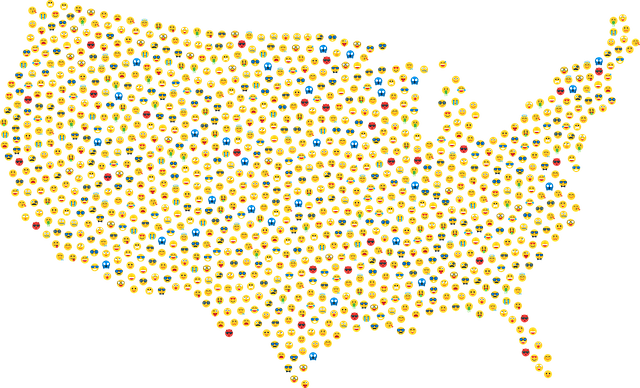To make Wealthtender free for readers, we earn money from advertisers, including financial professionals and firms that pay to be featured. This creates a conflict of interest when we favor their promotion over others. Read our editorial policy and terms of service to learn more. Wealthtender is not a client of these financial services providers.
➡️ Find a Local Advisor | 🎯 Find a Specialist Advisor

As recently reported by CreditCards.com, the state whose residents are best at managing their money is South Dakota, followed by Montana and a three-way tie between Wisconsin, Maine, and Vermont for 3rd place. This ranking places Texas, Maryland, and Washington DC at the bottom of the pile. As a Maryland resident, something smelled fishy here, so I started digging at the data.
A Plausible-Seeming Premise
The author of the above-mentioned study, Ted Rossman, ranked the 50 states and DC by median income and separately by their median FICO credit score. Then, he subtracted the credit score ranking from the income ranking.
The graph below shows a correlation between median household income and median FICO score, and that there’s a spread for a given income range. Mr. Rossman attributed this spread to how well the residents of different states manage their money.
Plausible, but…

Pesky Problems with this Case
Mr. Rossman concedes that factors other than money management skills affect the median FICO score. He notes that the length of your credit history counts for 15% of your FICO score, and points out that indeed, Maine and Vermont, two of his top five states have the oldest median age. On the other hand, Alaska, California, Texas, and DC, four of his five lowest are among the seven youngest in the nation by median age.
Rossman then adds that California, Texas, DC, and Maryland, again in his bottom five, lead the nation in immigrant population size. Since immigrants, by definition, lived some of their lives elsewhere, their years abroad shorten their US credit history, hurting their credit score.
Housing costs are another fly in the simplicity ointment. California and DC, Rossman’s two lowest-ranked, are in the top three for most expensive real estate. This in absolute dollar terms and even when scaling by median income. High housing costs reduce money available for other needs. As a result, a financial hiccup will likelier cause you to miss payments. Since timely payments account for 35% of your FICO score, that can be a problem.
A Better Measure of Money Management Skills
We have little control over how expensive homes run in decent neighborhood in our state. We have similarly little control over how much employers in our state pay us. What we do have (at least some) control over is how much we spend on credit cards.
To me, that makes your median credit card balance, scaled by household income, a far better indicator of money management skills.
Since your credit utilization ratio accounts for 30% of your FICO score, lenders seem to agree. You can see this in the next graph, which shows the correlation between FICO score and median balance owed on credit cards (scaled by median household income).

The Real Winners and Losers in Residents’ Money Management Skills
Using the average credit card debt measured in months of income to rank states, we find that the top states in residents’ money management skills are:
- Massachusetts (at 0.9 months’ credit card debt)
- New Hampshire (at 1.0)
- A 7-way tie for 3rd place between DC, Ohio, Minnesota, Maryland, Rhode Island, Pennsylvania, and Connecticut (at 1.1)
Using this same ranking, the worst states are:
46. A 2-way tie between Louisiana and Florida (at 1.9 months’ credit card debt)
48. A 3-way tie between Montana, New Mexico, and Alaska (at 2.0)
51. Wyoming (2.3)
Interestingly, Montana, 2nd place in Rossman’s ranking, comes in tied for 48th place here; while Maryland and DC, 50th and dead last in Rossman’s ranking, tie for 3rd place here.
The Bottom Line
Personal finance is, as I often say, personal. Each of us has a unique financial situation and back story. This makes it very difficult to come up with a way to measure the money management skills of an entire state’s population, and compare it to other populations.
Thus, I make my assertion about the “real” winners and losers of this competition with tongue firmly in cheek. At best, I’d argue that my measure is probably better than Mr. Rossman’s. However, that doesn’t make it perfect by any stretch of the imagination. Nonetheless, it’s still fun to “prove” that my state ties for 3rd best, rather than next to last :).
Disclaimer: This article is intended for informational purposes only, and should not be considered financial advice. You should consult a financial professional before making any major financial decisions.

About the Author
Opher Ganel, Ph.D.
My career has had many unpredictable twists and turns. A MSc in theoretical physics, PhD in experimental high-energy physics, postdoc in particle detector R&D, research position in experimental cosmic-ray physics (including a couple of visits to Antarctica), a brief stint at a small engineering services company supporting NASA, followed by starting my own small consulting practice supporting NASA projects and programs. Along the way, I started other micro businesses and helped my wife start and grow her own Marriage and Family Therapy practice. Now, I use all these experiences to also offer financial strategy services to help independent professionals achieve their personal and business finance goals. Connect with me on my own site: OpherGanel.com and/or follow my Medium publication: medium.com/financial-strategy/.
Learn More About Opher
To make Wealthtender free for readers, we earn money from advertisers, including financial professionals and firms that pay to be featured. This creates a conflict of interest when we favor their promotion over others. Read our editorial policy and terms of service to learn more. Wealthtender is not a client of these financial services providers.
➡️ Find a Local Advisor | 🎯 Find a Specialist Advisor

